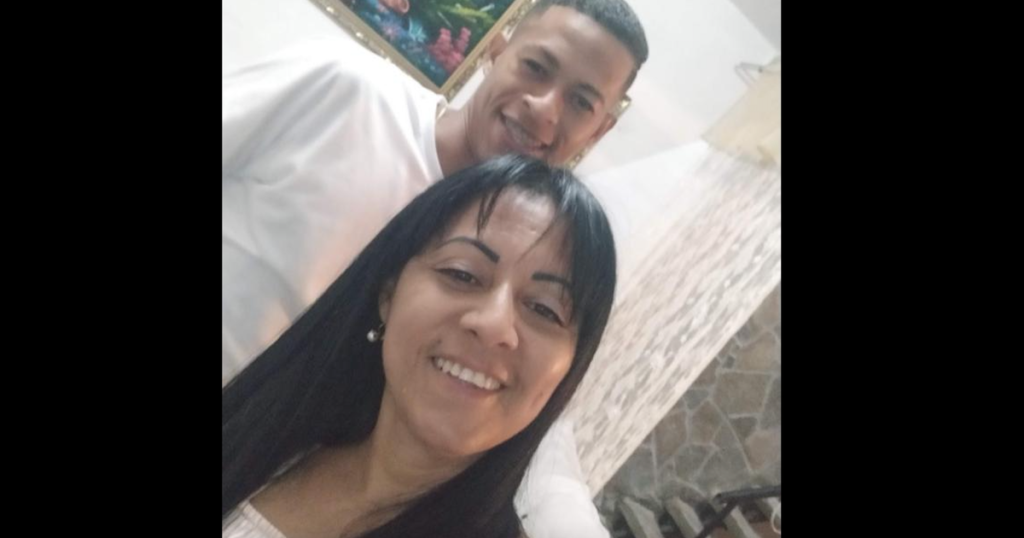On May 18, the family of a Venezuelan migrant detainee in El Salvador’s CECOT mega prison announced the death of Marlene Ramirez, a grandmother deeply affected by her inability to communicate with her grandson, Jonathan Mendoza Ramirez. The emotional toll inflicted by family separation, particularly among mothers of detainees, has given rise to a WhatsApp group that provides support and shares information about their loved ones. This growing community emerged after the deportation of several Venezuelan migrants by U.S. authorities, raising questions about the treatment and rights of these individuals in El Salvador.
| Article Subheadings |
|---|
| 1) The Rise of a Support Network |
| 2) Emotional Toll on Families |
| 3) Legal Complications and Misunderstandings |
| 4) Activism in Action |
| 5) Looking Toward the Future |
The Rise of a Support Network
Following the deportation of Venezuelan migrants to El Salvador, many mothers created a virtual support community via WhatsApp. The group has rapidly expanded, with members initially connecting through social media and sharing the distressing developments surrounding their sons. Among these mothers is Jetzy Arteaga, who spearheaded the initiative out of a need for information and solidarity.
The community evolved quickly as members shared the shocking visuals of their sons arriving in shackles. Videos spread on social media, showing detainees being forcibly escorted into CECOT, facing degrading treatment as guards shaved their heads. These images sparked outrage and further solidified the mothers’ resolve to support one another.
Emotional Toll on Families
The emotional burden borne by families is palpable, as highlighted by Analia Burbano, whose nephew, Victor Andres Ortega Burbano, is currently detained. She described her sister’s grave condition, stating that constant exposure to distressing news and footage has led to severe psychological ramifications. Burbano mentions, “Ever since she saw the video of Victor at CECOT, she fell into a depression.” The trauma of separation compounds the anxiety felt by these families, creating a cycle of despair.
In addition, Arteaga emphasizes the gravity of the situation for mothers, explaining that their shared experiences serve as a means of understanding the emotional and mental strain they endure. The group acts as a support system where ideas and feelings can be exchanged, offering a semblance of normalcy amidst chaos.
Legal Complications and Misunderstandings
The legal complexities surrounding the detention of these migrants are significant. According to Burbano, her nephew had been granted Temporary Protected Status, allowing him to work legally in the United States until June 2024. His sudden transfer to CECOT shocked the family, leading them to question how such a status could be disregarded. Arteaga her son Carlos Cañizalez Arteaga remains detained despite documentation that disproves any affiliations with gangs.
The perceived misunderstanding of their sons’ histories, particularly concerning tattoos that could be misconstrued as gang affiliations, has become a prominent theme in many families’ stories. Some mothers argue that these tattoos were merely personal expressions rather than indicators of criminal conduct.
Activism in Action
The WhatsApp group’s primary focus is not only to support each other emotionally but also to plan collective actions that demand justice and release for their loved ones. The group frequently organizes trips to Miramar, Venezuela, to raise awareness and pressure officials to act on behalf of the detainees. Burbano articulated a hopeful sentiment, stating, “All we can do is trust that this nightmare will soon end.” Their communications also facilitate discussions about participating in demonstrations to garner international attention, particularly during significant global events.
The mothers commit to uplifting each other during difficult times, reinforcing their collective strength. For instance, Arteaga explained how group members assist families facing critical moments, making sure that no one feels isolated during their struggles.
Looking Toward the Future
As the situation continues to unfold, the mothers remain cautiously hopeful for a resolution. They are aware of the political currents that may influence the outcomes of their sons’ cases. Unfortunately, the current U.S. administration’s stance on deportations exacerbates their fears as it has labeled countless individuals as “the worst of the worst.”
The WhatsApp group’s existence serves as a stark reminder of the ongoing humanitarian crises faced by displaced individuals. The emotional and psychological toll experienced by families, paired with the complex legal landscape, creates a pressing need for advocacy. With each passing day, the group grows more determined to reclaim their sons and seek accountability from authorities.
| No. | Key Points |
|---|---|
| 1 | Venezuelan mothers form a WhatsApp support group to connect over shared struggles concerning their detained sons. |
| 2 | The emotional toll on families has become evident, leading to mental health issues. |
| 3 | Legal misunderstandings complicate the situation for families whose relatives are detained in CECOT. |
| 4 | Activism efforts are underway, with mothers seeking justice through protests and appeals to officials. |
| 5 | Challenges persist, but these mothers remain hopeful for their sons’ futures and tirelessly advocate for them. |
Summary
The plight of Venezuelan migrants detained in El Salvador highlights significant emotional and legal hardship faced by families. The formation of a supportive community through WhatsApp illustrates the resilience and determination of mothers striving to advocate for their sons amidst challenging circumstances. Continued attention to these pressing matters is essential for impacting change and addressing the broader implications of such human rights issues.
Frequently Asked Questions
Question: What is the CECOT prison?
CECOT is a maximum-security prison in El Salvador that has gained attention due to the detention of Venezuelan migrants who were deported from the United States.
Question: Why were Venezuelan migrants detained in El Salvador?
Many Venezuelan migrants were detained following their deportation by U.S. authorities, who claimed they were gang members, a classification that their families dispute.
Question: How has social media played a role in this situation?
Social media serves as a vital tool for the families to share information, connect with each other, and publicize their struggles, which has contributed to their activism efforts.


